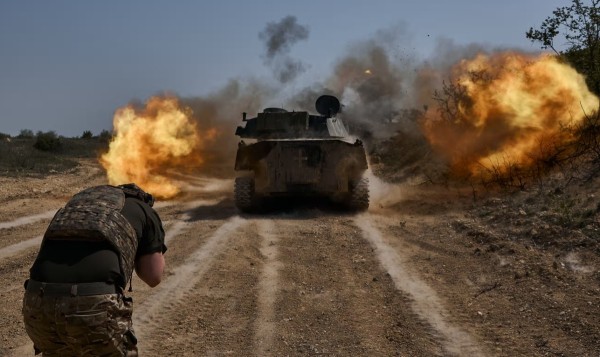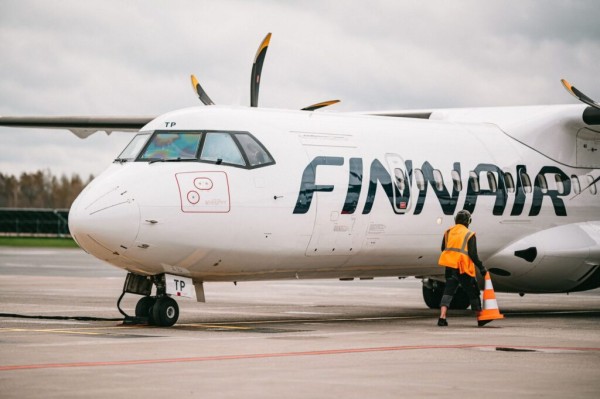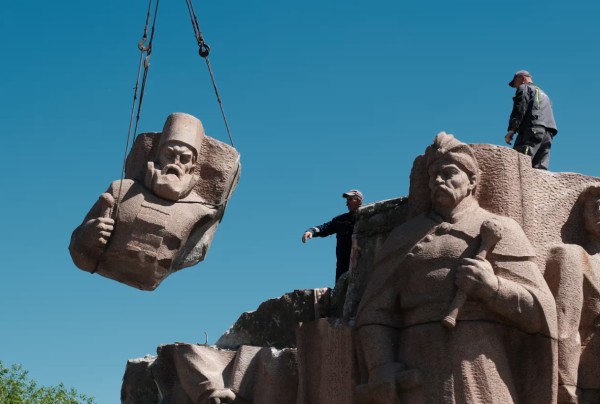
In December, Gennady Zyuganov, the Russian Communist Party’s perennial presidential candidate for the past two decades, stepped aside to make way for a fresh face: the 57-year-old manager of a commercial farm near Moscow by the name of Pavel Grudinin, a man with the appearance of a respectable and soft-spoken administrator and no affiliation with the party. The move prompted some analysts to consider the possibility that Grudinin could attract the support of urban protest voters left without a candidate after anticorruption campaigner Alexei Navalny was blocked from the presidential race.
But the Communist candidate soon made it clear that he has no intention of playing such a role. Grudinin spent the first weeks of the campaign publicly pledging his loyalty to that most macabre figure of Russian history, Joseph Stalin.
On a visit to Yekaterinburg — the city where the Russian royal family was slaughtered by the Bolsheviks in July 1918 — Grudinin asserted that Stalin was “a modernizer who led our country out of a deep crisis, and his political will made our country great.” In an extensive interview with the popular video blogger Yuri Dud — whose primary audience consists of the young protest voters Grudinin should have been eager to attract — he affirmed that Stalin was “the best Russian leader in a hundred years.”
In a country where almost every family was affected by that leader’s policies — forced collectivization, artificial famines, the Great Terror, mass deportations, the gulag — this may not be the best vote-getter. Thanks to Grudinin’s rhetoric, a vote for him is now equivalent to an endorsement of Stalinism. Whether this was a shrewd move by Kremlin strategists or Grudinin’s own deeply held views, the urban protest vote is now clearly going elsewhere — most likely toward a boycott advocated by Navalny or to spoiling the ballots as favored by the Open Russia movement.
Reverence for Soviet symbols is a trait Grudinin shares with the current occupants of the Kremlin. Vladimir Putin began his rule in December 1999 by unveiling a memorial plaque to Yuri Andropov, who, as Soviet ambassador to Budapest, oversaw the invasion of Hungary in 1956, and who, as chairman of the KGB, established the Fifth Directorate, which was tasked with suppressing dissent and expanded the practice of “punitive psychiatry” whereby dissidents were committed to mental asylums. Early on in his presidency, Putin reinstated the music of the Soviet national anthem — personally picked by Stalin in 1944 — as the national anthem of Russia, and described the peaceful dissolution of the USSR as “the greatest geopolitical catastrophe of the 20th century.” The retuned symbols of Soviet rule were quickly followed by Soviet-like methods of keeping a grip on society, from state control of television to the elimination of electoral competition.
Russian voters who feel nostalgic for the Soviet era don’t need Pavel Grudinin. They already have a likeminded leader in the Kremlin.
Another reminder of this came with the recent decision of the Zamoskvoretsky district court prohibiting a referendum on the removal of the statue of Vladimir Lenin from Kaluzhskaya Square in downtown Moscow. The vote had been called by the local council, under control of the opposition Yabloko party after municipal elections in 2017. Voters were going to be asked whether to dismantle the monument to the first Soviet dictator that was overlooked and left standing in the revolutionary days of August 1991, when other symbols of Communist rule — including the statues of Felix Dzerzhinsky, the founder of the KGB, and Yakov Sverdlov, the mastermind of the assassination of the royal family — were toppled by protesters. Arguing for a ban on the referendum, state prosecutors asserted that this issue “does not fall under local jurisdiction.”
In a perverse way, that statement is actually true. The rehabilitation and preservation of Soviet symbols is a deliberate policy choice of Putin’s regime. Whatever Muscovites or Russians as a whole may think of it, while the current regime remains in power, the symbols of totalitarian rule will remain in place. It will take more than a local referendum to change that.
https://www.washingtonpost.com...


























